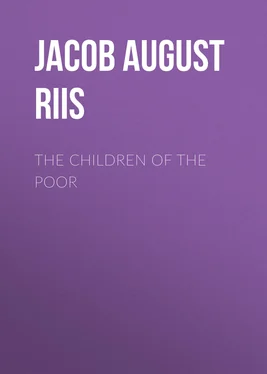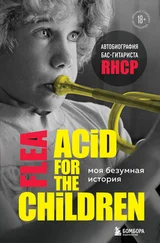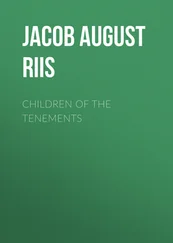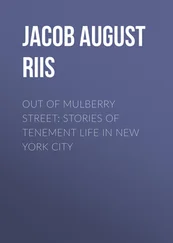Jacob August Riis - The Children of the Poor
Здесь есть возможность читать онлайн «Jacob August Riis - The Children of the Poor» — ознакомительный отрывок электронной книги совершенно бесплатно, а после прочтения отрывка купить полную версию. В некоторых случаях можно слушать аудио, скачать через торрент в формате fb2 и присутствует краткое содержание. Жанр: foreign_prose, sociology_book, foreign_antique, на английском языке. Описание произведения, (предисловие) а так же отзывы посетителей доступны на портале библиотеки ЛибКат.
- Название:The Children of the Poor
- Автор:
- Жанр:
- Год:неизвестен
- ISBN:нет данных
- Рейтинг книги:4 / 5. Голосов: 1
-
Избранное:Добавить в избранное
- Отзывы:
-
Ваша оценка:
- 80
- 1
- 2
- 3
- 4
- 5
The Children of the Poor: краткое содержание, описание и аннотация
Предлагаем к чтению аннотацию, описание, краткое содержание или предисловие (зависит от того, что написал сам автор книги «The Children of the Poor»). Если вы не нашли необходимую информацию о книге — напишите в комментариях, мы постараемся отыскать её.
The Children of the Poor — читать онлайн ознакомительный отрывок
Ниже представлен текст книги, разбитый по страницам. Система сохранения места последней прочитанной страницы, позволяет с удобством читать онлайн бесплатно книгу «The Children of the Poor», без необходимости каждый раз заново искать на чём Вы остановились. Поставьте закладку, и сможете в любой момент перейти на страницу, на которой закончили чтение.
Интервал:
Закладка:
“He?” said the other, who could, “he? He don’t learn nothing. He throws stones.” The wicked one nodded. It was the extent of his education.
But if the three R’s suffer neglect among the children of the poor, their lessons in the three D’s—Dirt, Discomfort, and Disease—that form the striking features of their environment, are early and thorough enough. The two latter, at least, are synonymous terms, if dirt and discomfort are not. Any dispensary doctor knows of scores of cases of ulceration of the eye that are due to the frequent rubbing of dirty faces with dirty little hands. Worse filth diseases than that find a fertile soil in the tenements, as the health officers learn when typhus and small-pox break out. It is not the desperate diet of ignorant mothers, who feed their month-old babies with sausage, beer, and Limburger cheese, that alone accounts for the great infant mortality among the poor in the tenements. The dirt and the darkness in their homes contribute their full share, and the landlord is more to blame than the mother. He holds the key to the situation which her ignorance fails to grasp, and it is he who is responsible for much of the unfounded and unnecessary prejudice against foreigners, who come here willing enough to fall in with the ways of the country that are shown to them. The way he shows them is not the way of decency. I am convinced that the really injurious foreigners in this community, outside of the walking delegate’s tribe, are the foreign landlords of two kinds: those who, born in poverty abroad, have come up through tenement-house life to the ownership of tenement property, with all the bad traditions of such a career; and the absentee landlords of native birth who live and spend their rents away from home, without knowing or caring what the condition of their property is, so the income from it suffer no diminution. There are honorable exceptions to the first class, but few enough to the latter to make them hardly worth mentioning.
To a good many of the children, or rather to their parents, this latter statement and the experience that warrants it must have a sadly familiar sound. The Irish element is still an important factor in New York’s tenements, though it is yielding one stronghold after another to the Italian foe. It lost its grip on the Five Points and the Bend long ago, and at this writing the time seems not far distant when it must vacate for good also that classic ground of the Kerryman, Cherry Hill. It is Irish only by descent, however; the children are Americans, as they will not fail to convince the doubter. A school census of this district, the Fourth Ward, taken last winter, discovered 2,016 children between the ages of five and fourteen years. No less than 1,706 of them were put down as native born, but only one-fourth, or 519, had American parents. Of the others 572 had Irish and 536 Italian parents. Uptown, in many of the poor tenement localities, in Poverty Gap, in Battle Row, and in Hell’s Kitchen, in short, wherever the gang flourishes, the Celt is still supreme and seasons the lump enough to give it his own peculiar flavor, easily discovered through its “native” guise in the story of the children of the poor.
The case of one Irish family that exhibits a shoal which lies always close to the track of ignorant poverty is even now running in my mind, vainly demanding a practical solution. I may say that I have inherited it from professional philanthropists, who have struggled with it for more than half a dozen years without finding the way out they sought.
There were five children when they began, depending on a mother who had about given up the struggle as useless. The father was a loafer. When I took them the children numbered ten, and the struggle was long since over. The family bore the pauper stamp, and the mother’s tears, by a transition imperceptible probably to herself, had become its stock in trade. Two of the children were working, earning all the money that came in; those that were not lay about in the room, watching the charity visitor in a way and with an intentness that betrayed their interest in the mother’s appeal. It required very little experience to make the prediction that, shortly, ten pauper families would carry on the campaign of the one against society, if those children lived to grow up. And they were not to blame, of course. I scarcely know which was most to be condemned, when we tried to break the family up by throwing it on the street as a necessary step to getting possession of the children—the politician who tripped us up with his influence in the court, or the landlord who had all those years made the poverty on the second floor pan out a golden interest. It was the outrageous rent for the filthy den that had been the most effective argument with sympathizing visitors. Their pity had represented to him, as nearly as I could make out, for eight long years, a capital of $2,600 invested at six per cent., payable monthly. The idea of moving was preposterous; for what other landlord would take in a homeless family with ten children and no income?
Children anywhere suffer little discomfort from mere dirt. As an ingredient of mud-pies it may be said to be not unwholesome. Play with the dirt is better than none without it. In the tenements the children and the dirt are sworn and loyal friends. In his early raids upon the established order of society, the gutter backs the boy up to the best of its ability, with more or less exasperating success. In the hot summer days, when he tries to sneak into the free baths with every fresh batch, twenty times a day, wretched little repeater that he is, it comes to his rescue against the policeman at the door. Fresh mud smeared on the face serves as a ticket of admission which no one can refuse. At least so he thinks, but in his anxiety he generally overdoes it and arouses the suspicion of the policeman, who, remembering that he was once a boy himself, feels of his hair and reads his title there. When it is a mission that is to be raided, or a “dutch” grocer’s shop, or a parade of the rival gang from the next block, the gutter furnishes ammunition that is always handy. Dirt is a great leveller; 6 6 Even as I am writing a transformation is being worked in some of the filthiest streets on the East Side by a combination of new asphalt pavements with a greatly improved street cleaning service that promises great things. Some of the worst streets have within a few weeks become as clean as I have not seen them in twenty years, and as they probably never were since they were made. The unwonted brightness of the surroundings is already visibly reflected in the persons and dress of the tenants, notably the children. They take to it gladly, giving the lie to the old assertion that they are pigs and would rather live like pigs.
it is no respecter of persons or principles, and neither is the boy where it abounds. In proportion as it accumulates such raids increase, the Fresh Air Funds lose their grip, the saloon flourishes, and turbulence grows. Down from the Fourth Ward, where there is not much else, this wail came recently from a Baptist Mission Church: “The Temple stands in a hard spot and neighborhood. The past week we had to have arrested two fellows for throwing stones into the house and causing annoyance. On George Washington’s Birthday we had not put a flag over the door on Henry Street half an hour before it was stolen. When they neither respect the house of prayer or the Stars and Stripes one can feel young America is in a bad state.” The pastor added that it was a comfort to him to know that the “fellows” were Catholics; but I think he was hardly quite fair to them there. Religious enthusiasm very likely had something to do with it, but it was not the moving cause. The dirt was; in other words: the slum.
Such diversions are among the few and simple joys of the street child’s life, Not all it affords, but all the street has to offer. The Fresh Air Funds, the free excursions, and the many charities that year by year reach farther down among the poor for their children have done and are doing a great work in setting up new standards, ideals, and ambitions in the domain of the street. One result is seen in the effort of the poorest mothers to make their little ones presentable when there is anything to arouse their maternal pride. But all these things must and do come from the outside. Other resources than the sturdy independence that is its heritage the street has none. Rightly used, that in itself is the greatest of all. Chief among its native entertainments is that crowning joy, the parade of the circus when it comes to town in the spring. For many hours after that has passed, as after every public show that costs nothing, the matron’s room at Police Headquarters is crowded with youngsters who have followed it miles and miles from home, devouring its splendors with hungry eyes until the last elephant, the last soldier, or the last policeman vanished from sight and the child comes back to earth again and to the knowledge that he is lost.
Читать дальшеИнтервал:
Закладка:
Похожие книги на «The Children of the Poor»
Представляем Вашему вниманию похожие книги на «The Children of the Poor» списком для выбора. Мы отобрали схожую по названию и смыслу литературу в надежде предоставить читателям больше вариантов отыскать новые, интересные, ещё непрочитанные произведения.
Обсуждение, отзывы о книге «The Children of the Poor» и просто собственные мнения читателей. Оставьте ваши комментарии, напишите, что Вы думаете о произведении, его смысле или главных героях. Укажите что конкретно понравилось, а что нет, и почему Вы так считаете.












